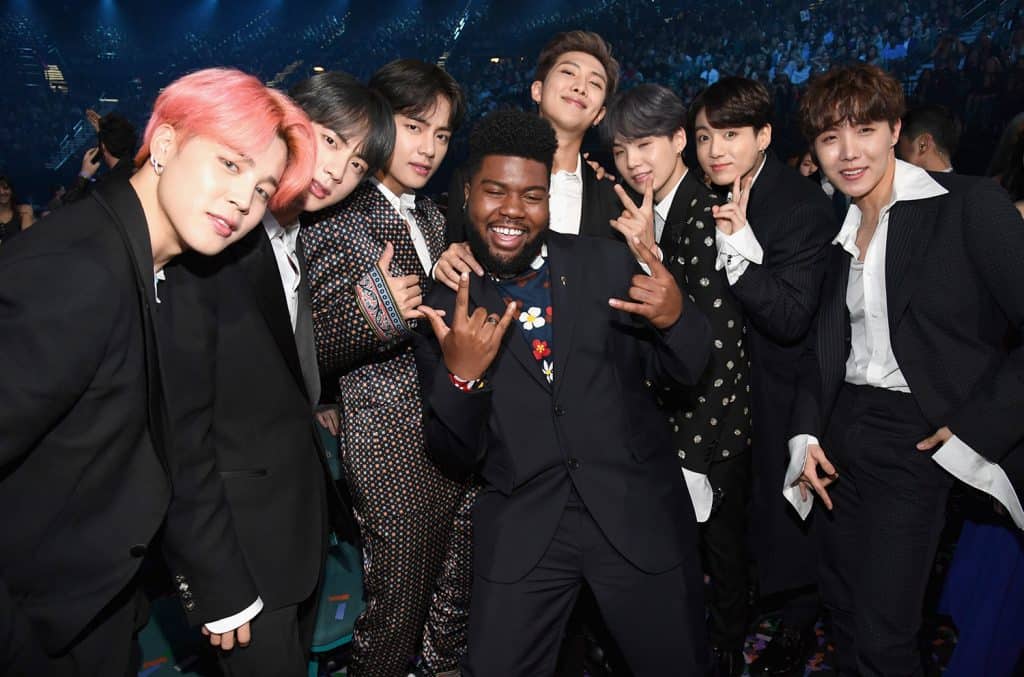Even if you’re a stranger to KPop, it’s unlikely that you haven’t heard of BTS. The Korean septet quickly garnered attention for dethroning Justin Bieber’s six-year run as Billboard Music Award’s Top Social Artist. And then, seemingly took over the world overnight. Credit for their landslide success often goes to their vocal fan “ARMY.” The fanbase like no other, has in turn, moved mountains for their idols. But devoted fanbases are nothing new to KPop, or the music industry in general. What then sets them apart? What’s the secret behind a fanbase that is so much louder, more passionate, and to some degree, even militant
The answer—which most cynical advertising veterans would be quick to point out is branding. While conceptualizing “artist as product” is commonplace within the industry, KPop systems are notorious for “manufacturing” their idol stars. Here, “concept” is a catchall term encompassing everything from music video aesthetics to clearly-defined roles and themes. Groups are distinguished by these, with each member further distinguished under their respective brand. BTS’s agency, BigHit Entertainment, has largely adhered to this playbook, with the only difference being how theirs is written. Imagine breaking the mold for generation-defining KPop, by allowing that generation to co-create it..
The result is a masterclass in branding for the social media age. Something every marketer in the industry is key to take note of for every act to come.
Your story is mine: when message matches market.
Launched in 2013, Bangtan Sonyeondan(Bulletproof Boy Scouts) were the underdogs of a system dominated by polished idol-factories. Coming from an agency with little funds, success, or reputation, it was clear the group would have a rough start. But, rather than compensating with bravado or radio-ready concepts, these rookies did the unthinkable: they owned up to it. They leaned in to their status as raw, unabashed rebels, refusing to hide their anger and dissatisfaction behind pop-friendly smiles.
“Killing us before we can try”
Nothing illustrates this better than the subject of BTS’ first single, No More Dream. The material is outright social criticism, openly attacking society’s prevailing success standards. Every expectation from prestigious college degrees and government jobs, to having big houses with big cars is, targeted. The track, as well as the entire debut album, drew a stark line between tensions. And, it would lend voice to a generation’s desire to forge their own path, against the status quo of another. It’s a message that strongly resonates with Korean youth. Having grown up in a class system where one’s educational background draws judgement, heavily influences their prospects within society.
“[Saying] we have no willpower while [looking] at us as if we were investments.”
Follow-up releases would include more radio-friendly love songs, but still continuing to supply equal prominence to social criticism. O!RUL8,2?’s title track N.O. took the criticism further by rejecting the norms, instead, “saying no.” Rather, they promoted the decision to chase one’s dreams, despite the overbearing odds. Those odds would emphasised in tracks like Dope, where BTS’s frontman RM calls out previous generations stifling the youth.
Like many iconic acts before them, BTS gave a generation a voice by writing songs that validated their struggles. This “wokeness” martialed a dedicated fanbase of frustrated, maligned youth, who could relate to the group’s “no-filter” message.
I’m only me when I’m with you: on “authenticity” and building community.
It was this sense of no-filter personas that got BTS on the map before all the awards and international stardom. Early on, their agency, BigHit, recognized social media’s ability to create the illusion of “direct contact.” And, in turn, nurtured this illusory intimacy, giving each member more or less free rein on their shared platforms.
The result is an ongoing series of raw, honest, and often awkward tweets and video logs. However, the display of candidness only increased fan affinity. The added publicity that the BTS members themselves are involved in the songwriting process helps build the image further. They are still human on their level, and fans take their songs as personal extensions to them. BTS frontman, Kim Namjoon(RM), encourages this through official tweets and letters dedicated to the fans themselves.
Bear in mind that shoutouts “to the fans” and “for the fans” are part of every major pop group’s wheelhouse. However, BTS’ consistency in reaching out to their ARMY is what sets the group apart. From retweeting fan-made memes, to trading appearances for intimate video-chat with fans, they’re building trust. The relationship between fan and artist is as real and as close as they make it. And the septet make sure to never break this illusion of relationship with their fans.
This portrays a friendship summed up in tearful speeches at concerts, and long personal messages on exclusive message boards. Even with their music and concepts aside, their greatest investment is probably the narrative they have built for themselves. It positions them as part of a community with their ARMY, sharing the same internal struggles and life experiences together.
Billboard Music Awards 2019: Performance with Halsey
“The Most Beautiful Moment in Life”/”Wings”
The unique fan-idol relationship is probably best expressed in the album You Never Walk Alone. It closes out the band’s defining era and underscores their iconic album series. It’s an interconnected saga that tackles the theme of being “young forever.” Although, instead of traditionally portraying the youth through reckless, rose-tinted abandon, their interconnected Bangtan Universe takes it differently.
The transitional stage of youth is framed in difficulty, and confusion. It is often heart-wrenching and has been known to destroy lives. Survival depends on close, meaningful friendships, as well as defying the stereotypes of the millennial and post-millennial generations. BTS is here for them, they understand the youth aren’t the superficial, digital exiles they’ve been made out to be.
The album was released in 2017, when many of the fans, like the band themselves, had entered their early twenties. At this point, teenage rebellion would have given way to that young adult sense of fear, uncertainty, and ambivalence. This shift is reflected as well in the band’s own evolution. In contrast to their first single, YNWA’s carrier, Spring Day is a melancholy reflection on friendship, loss, and change. It signaled the group’s maturity while simultaneously providing a soundtrack for the similar experiences of their fan base. From optimistic teenage rebels, ARMY were fast becoming uncertain and lost twenty-somethings, and BTS’s sound and lyrics adjusted accordingly.
Billboard Music Awards 2019: Posing with Khalid.
You never walk alone: growing (and changing) with the fans.
It’s this continual growth with their fanbase that defines BTS as a group. It’s right on the pulse of emotional needs, and makes them a voice of a generation. And being part of that growth means they constantly adjust their messaging to what will resonate their fans. This is evident in recent, poppier releases. Within their Love Yourself era, the angst of their early career transitions to a more hopeful mindset and meaning. They transformed the millennial vibe of their pre-BBMA’s concepts, to a Gen-Z message of self-love, hope, and inclusivity. And they did so in a way that doesn’t feel calculated so much as learned from life experiences.
That’s probably the subtlest thing about BTS’ success: much of their brand feels earned, not manufactured. In essence, BTS’ “overnight” popularity wasn’t really overnight at all. It’s the product of years spent getting to know their audience, delivering the messages resonate the best. It’s the building of a community that would in turn, build more off those messages. Most importantly, it’s that the BTS core is as much an ARMY creation as it is the members’ themselves.
How that story goes on from here, only time will tell. For now, if there’s anything marketer’s can learn from BTS’s meteoric rise, is that they listened. And for that they were no longer members in a pop act, but an actual zeitgeist of a generation. If you care about your fans enough, your brand could actually take over the world.



No Comments